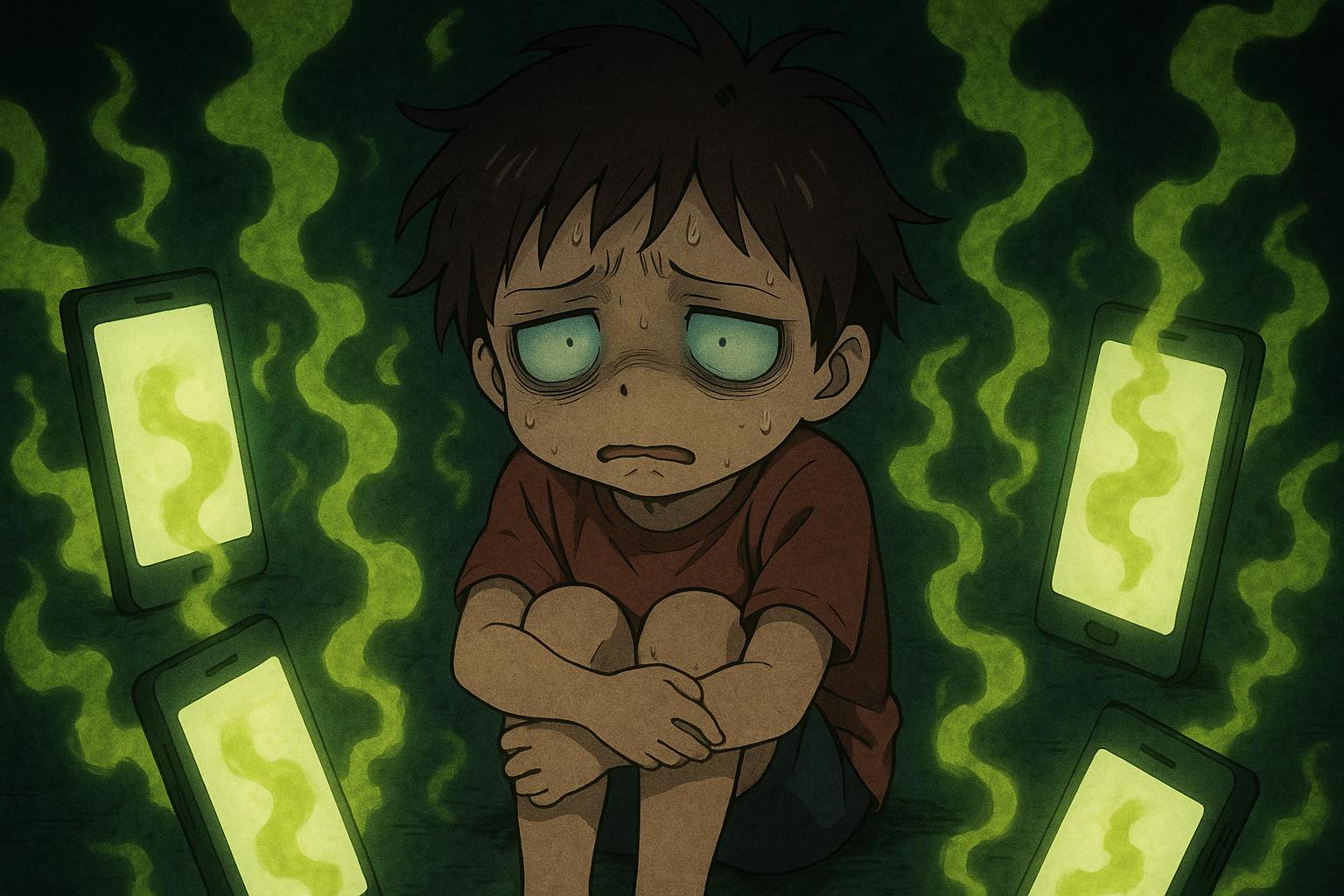Britain's burgeoning “screendemic” has emerged as a serious concern, with consultant paediatrician Dr Sanjiv Nichani asserting that excessive smartphone and social media use is “poisoning our children” and exacerbating a mental health crisis among young people. Dr Nichani, who played a pivotal role in establishing Leicester Children’s Hospital, expressed alarm over the growing epidemic of mental health illnesses in juveniles, characterising the impact of screens as not merely a public health concern but a profound threat to societal wellbeing.
In recent years, research has increasingly linked high levels of screen time to a variety of mental health issues in children, including anxiety, depression, and developmental delays. Dr Nichani’s observations resonate with wider evidence; he notes that children as young as toddlers are exhibiting concerning symptoms. “They have this glazed appearance on their face,” he elaborated, stressing how many of these children spend excessive time in front of screens rather than engaging in meaningful interactions or activities. Furthermore, his clinic frequently sees teenagers presenting symptoms akin to Attention-Deficit/Hyperactivity Disorder attributed to prolonged screen exposure and social media usage.
The urgency of Dr Nichani's message is underscored by concerns that governmental responses have been insufficient. He argues that current legislation aimed at addressing these issues, now under parliamentary discussion, lacks the potency needed to effect real change. Conservative MP Kit Malthouse has drawn a stark parallel, comparing addictive smartphone use to “smoking for the brain,” highlighting how the issue transcends individual choice and poses a significant societal challenge.
This rising concern is echoed across Europe, where families in France have taken legal action against TikTok, claiming that harmful content on the platform contributed to their children’s suicides. The plaintiffs assert that TikTok's failure to adequately moderate harmful content demonstrates a shocking neglect for the welfare of vulnerable youths—a sentiment echoed by psychological experts who caution that while a direct link between social media use and mental health problems remains unproven, there is considerable agreement that these platforms can worsen pre-existing conditions.
In response to mounting distress over the impact of smartphones, various UK schools have adopted strict regulations. For instance, Thomas Mills High School has instituted a complete smartphone ban during school hours, motivated by increasing evidence tying smartphone use to mental health issues such as depression and eating disorders. This initiative reflects a growing consensus among educators and parents that stricter measures are necessary to protect young people. In fact, surveys indicate that nearly half of the British public supports outright bans on smartphones in educational settings.
Calls for regulation are further amplified by initiatives like the proposed Kids Online Safety and Privacy Act (KOSPA) in the United States, which seeks to ensure that online platforms safeguard children without compromising the rights of marginalised communities. Critics argue, however, that overregulation could hinder beneficial access for certain groups. Yet, mounting evidence suggests that social media disproportionately harms these vulnerable populations, a concern amplified by testimonies and research revealing the detrimental influence of digital interactions on youth mental health.
Expert committees, including one commissioned by French President Emmanuel Macron, have also drawn attention to the dire implications of excessive screen exposure. Their findings spotlight a plethora of negative health outcomes, recommending measures such as limiting screen use amongst young children and advocating for the exclusion of computers and televisions in early education settings. While acknowledging the benefits of digital technology, the committee emphasises the vital need for society as a whole to implement interventions aimed at mitigating individual and collective risks.
The general sentiment across both the UK and beyond highlights a pressing need for collective action. There’s a growing recognition that addressing the challenges posed by excessive screen time requires involvement from parents, educators, and policymakers alike. As society grapples with the ramifications of a digitally saturated environment, many advocate for a balanced approach that prioritises the mental health and development of the younger generation amidst an ever-evolving digital landscape.
Reference Map:
- Paragraph 1 – [1], [4]
- Paragraph 2 – [1], [2], [3]
- Paragraph 3 – [2], [5]
- Paragraph 4 – [3], [6]
- Paragraph 5 – [6]
- Paragraph 6 – [5]
Source: Noah Wire Services
